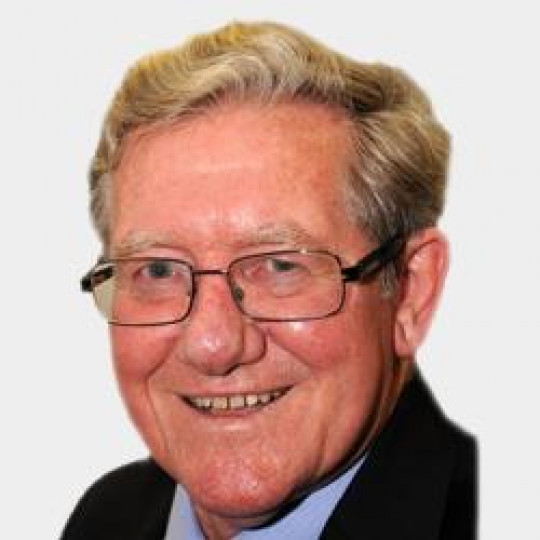IN MEMORIAM: DAVID P. FARRINGTON

On 4th November, an international conference on developmental and life course Criminology started in Lisbon. Various speakers emphasised the outstanding work of Professor David P. Farrington in this field. Due to serious health problems, he could not attend and one day later he passed away at Cambridge. He also could not get the result of an initiative to honour him with a knighthood in the UK. Although these actions were in vain, David had already been ‘knighted’ in the thoughts of numerous scholars and in the history of Criminology.
Professor Farrington, born in 1944, was an internationally outstanding scholar. He ranked top in citation analyses in Criminology and was also among the most cited psychologists. He published 136 books and research monographs, 584 journal articles, 341 book chapters, and 164 other articles (1,225in total). Google Scholar records 144,465 citations, and his h-index of 199 is exceptionally high. However, David’s unrivalled productivity should not only be commended in bibliometric terms. Whereas the modern academic world is moving towards narrow specialisation, he showed that a ‘giant’ in science can address a wide range of topics.
He published on crime prevalence and incidence, risk and protective factors, types of crime, community characteristics, technical and situational crime prevention, labelling processes, offender treatment and rehabilitation, early developmental prevention, cross-national comparison, victimisation, school bullying, crime and gender, psychopathy, biosocial bases of violence, intergenerational transmission of offending, crime statistics, self-report methodology, benefit-cost analyses, evaluation designs, systematic reviews, criminological theories, and other issues. It is difficult to find a criminological topic to which David had not made a sound contribution. His most important research was the Cambridge Study in Delinquent Development (CSDD) that Donald West started with David in the 1960s. He was the director of this project for decades. It investigated a London sample of boys from age eight up to age 61 and, in addition, their second and third generations of offspring. The CSDD became a landmark study on the origins and pathways of criminal behaviour (including aggravation and desistance). The great importance and success of the CSDD is not only proven by numerous publications, but many young scholars worked on it and later became respected researchers around the world. David also cooperated intensively with Rolf and Magda Loeber in the Pittsburgh Youth Study.
Although David’s work addressed Criminology as a science, it occurred not in an ‘ivory tower’. For example, he advised policymakers on crime prevention in families and schools. His book Saving Children from a Life of Crime had an impact in Britain and elsewhere. As chair of the Steering Group of the Campbell Collaboration on Crime and Justice and President of the Academy of Experimental Criminology, he promoted evidence-based policymaking in many areas. His research and international collaboration strongly contributed to the worldwide reputation of the Cambridge Institute of Criminology (IoC).
It was a logical consequence that his great achievement in research, teaching, supervision and advice resulted in a huge number of honors and awards, for example: the Stockholm Prize in Criminology; all four main awards (Sutherland, Sellin-Glueck, August Vollmer, and Freda Adler) of the American Society of Criminology (ASC); the Joan McCord Award of the Academy of Experimental Criminology; the Beccaria Gold Medal of the Criminological Society of the German-speaking Countries; the Herrmann Mannheim Prize of the International Centre for Comparative Criminology; the Lifetime Award of the European Association of Psychology and Law; the International Juvenile Justice Award from Belgium; the Award for outstanding contributions of the
U.S. Office of Juvenile Justice and Delinquency Prevention; the Prize for Distinguished Scholarship from the American Sociological Association; the Senior Award of the Forensic Psychology Division of the British Psychological Society; and the John Paul Scott Award of the International Society for Research on Aggression. He was an OBE, a fellow of the British Academy, the Academy of Medical Sciences, the ASC, an honorary doctor of science at Trinity College Dublin, and an honorary professor at two universities in China. Why is the ESC missing from this list of honours?
David never hesitated to take over important positions as president or chairman, for example, in the British Criminological Society, the British Psychological Society, the European Association of Psychology and Law, the Academy of Experimental Criminology, the U.S. Center for Disease Control, the UK Department of Health, the Campbell Collaboration, the ASC Division of Developmental and Life Course Criminology, and as the only foreign President of the ASC. He had offers of prestigious positions abroad but stayed with his family and at the IoC at Cambridge.
In addition to his stellar role in science, David was also a wonderful man (in my view, a rare combination). He supported numerous young scholars and colleagues. He was very warm-hearted, friendly, sociable, emphatic, and dynamic. His enthusiastic dancing at social events expressed his liveliness. David was born in Ormskirk, Lancashire, and grew up in a poor family. He had always had excellent grades at school and studied psychology at Cambridge. He was hired by Donald West for the CSDD, in particular for statistical analyses. Later, he became a university lecturer, reader, and full Professor of Psychological Criminology at the IoC. Although he was a cosmopolitan, he was always modest in many aspects of daily life. If you want to learn more about the life and work of David, read his chapter in R. Tremblay (Ed.) (2021), The Science of Violent Behavior Development and its Prevention: Contributions of the Second World War Generation, Cambridge University Press.
David suffered from Motor Neurone Disease and was sacrificially nursed at home. He died on 5th November 2024 and is survived by his wife Sally, three daughters, and ten grandchildren.
